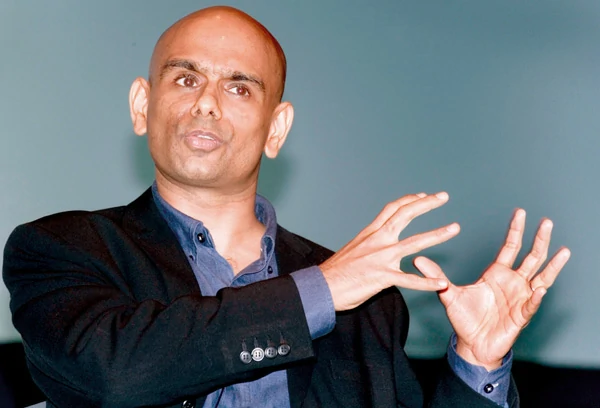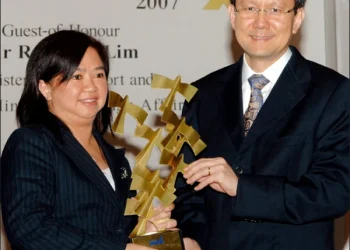
Business Today spoke to Karthik Siva, the founding Chairman of the Global Brand Forum on the challenges of organising and executing such a world class global forum.
By Harin Fernando
How did you start GBF and how is it the leading branding forum today?
Today, you simply cannot ignore brands, even if you detest them. They are ubiquitous, in your face and have unprecedented clout economically, socially, culturally and even politically. Brands can be downright intrusive, even offensive and  promote greed, fear, ego etc or they can be a force for good, a catalyst for social change and a tool for organisational transformation. In a way brands have enormous power. But with great power comes great responsibility. This mysterious power of brands has always fascinated me. Further four years ago, I was quite puzzled to note that there was no Branding Forum that had a global scale or following. There were leadership forums, media forums, advertising forums, technology forums etc, but no real branding forum. That is what motivated me to kick start this initially.
The Global Brand Forum was set up in 2003 to be the first Forum on Branding that truly has global scale, stature, content, coverage and audience. It was also meant to be a platform for inspiration and brand thought leadership. We wanted to bring outstanding global leaders, icons and luminaries who have redefined businesses, created brands and even changed the world in some way. And we wanted CEOs, Marketers, Entrepreneurs, Advertisers and Bureaucrats from Asia to change the way they looked at their brands and businesses by getting them up close and personal with these Global Leaders.
I Have Come To The Conclusion That Great Brands Are Seldom Built By Brand Experts Or Advertising Agencies.
Secondly, Brands are too important to be circumscribed with the confines of advertising agencies or marketing departments of companies. My personal frustration with the branding and advertising industry is that it consists of  loads of  brand experts who know quite a bit about brands but have not truly built any brands. There is a big difference between knowing about brands and actually creating them. As someone who has been in the advertising industry for more than 15 years, I cannot help feeling that advertising agencies at best create very good advertising. Unfortunately  very good advertising cannot create outstanding brands.
Further, we asked ourselves this question, “Who has the credibility and who would you rather listen to – A brand expert or the real-deal leaders like an Al Gore, Anita Roddick, Richard Branson” etc? The answer was simple. I have come to the conclusion that great brands are seldom built by brand experts or advertising agencies. They are built by inspiring leaders. That is one of the reasons why we bring inspiring leaders and icons from diverse fields like Films, Media, Business, Politics and of course, Advertising. We put these diverse people on to the same stage. That creates a combustion and spark that is unpredictable and inspiring. In the past we have had unusual people like Dr Deepak Chopra squaring off with Anita Roddick; Rudy Giuliani and Francis Ford Coppola sparring with each other etc. This alchemy always creates magic and electrifies the audience.
Our challenge is always to set higher standards each year. This is always difficult because an inevitable question that haunts us is always who do you bring next year after you have brought Anita Roddick or Al Gore or Warren Bennis or Francis Ford Coppola?  But, whilst it is a big challenge, that is exactly what makes doing the forum fun and stimulating. We also have a big following of people across Asia that have high expectations. That is yet another challenge.
But we have always been single minded about creating an “out of body experience” for our delegates. That’s eventually what keeps us going. Our ultimate high is when many delegates and even speakers tell us that, “these two days at the Global Brand Forum have been their most inspiring two days of the year.” Now that is simply too intoxicating to ignore!
Business Today spoke to Kevin Roberts – the New York-based CEO Worldwide of Ideas Company Saatchi & Saatchi whose clients include some of the world’s best-performing companies. Under his leadership at Saatchi & Saatchi, the agency network has grown revenue year by year and achieved success at the Cannes International Advertising Festival. In 2003 Saatchi & Saatchi was named Best Global Network by both Ad Week and Ad Age publications. In 2006 at Cannes, the network achieved No.2 in the world and lead office New York was the most awarded agency in the USA.
Photographer: Kate Ayrton
Source: www.saatchikeven.com.
Is the world flat?
The world is flattening in terms of offering a level playing field for commerce and the exchange of ideas. Technology and the spread of markets have made this great leveling possible. With a dream, an idea, and a connection in your palm or pocket, nowadays nothing is impossible – pretty much wherever you live. It’s the “fast beat the slow” not “the big beat the small.”
In terms of how people connect with each other and form emotional relationships, the world is multi-layered, and long may that continue. With each new wave of technology, we are learning new ways to communicate and cooperate with each other. People are developing much richer, more emotional vocabularies, and that’s good news for a better world.
What does it take to be a brand leader?
Conventional brands are in trouble; they’ve run out of juice and played out their relevance. Great brands are in danger of becoming commodities. The few brands that have escaped the commodity trap will now lead. These brands fuse mystery, sensuality and intimacy into a magic that takes you past irreplaceable to become irresistible.
The key word is not communication. It’s “connect,” and those who connect win. People don’t sleep with their iPod for a reason. Lovemarks create Loyalty Beyond Reason… not for a reason.
How are modern social trends having an impact on brand activities?
The dissolution of mass markets and atomization of society into more finely focused communities of interest, and micro-niches, are changing the game. Paradoxically, a single global consciousness is forming around brands.
Consumers know they are in charge now, they’ve moved from I need and I want to I can, and they love it. People are open to new experiences but today people want be attracted by stories that engage, empathize and inspire. Brands need a past and a present and a future. The back story is as important as the punch line and the sequel.
Is the consumer now more than ever ‘aware’ of advertising?
There are thousands of TV channels, movies, radio stations, magazines and newspapers. Millions of websites. And advertising is splattered everywhere. It’s like drinking out of a fire hose. People are growing fatigued by the choices and options they face.
Spraying and praying with top-down mass messages won’t connect with people. Advertising is becoming “white noise” that people are aware of on a base sensory level but oblivious to on a cognitive level, unless it reaches out and touches them. Welcome to the Attraction Economy.
How is technology changing traditional branding?
By making it both more intelligent and more emotional. With each new technological advance, we get new opportunities and new ways to mix sight, sound and motion (or “sisomo”) to connect emotionally with consumers.
Technology has forever altered and tilted the axis of power in favor of the consumer. We have more cool tools to make that crucial emotional connection that leads to action, but we must understand the new rules of the road and learn that the consumer is behind the wheel. It’s about attraction not distraction, about attracting people when and where they are interested. And connecting with them emotionally.
Websites: www.lovemarks.com; www.saatchikevin.com; krconnect.blogspot.com; Books: Lovemarks: the future beyond brands; the Lovemarks Effect – winning in the consumer revolution; Sisomo: the future on screen (powerHouse Books) (Available at BT Store)





